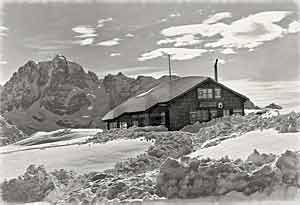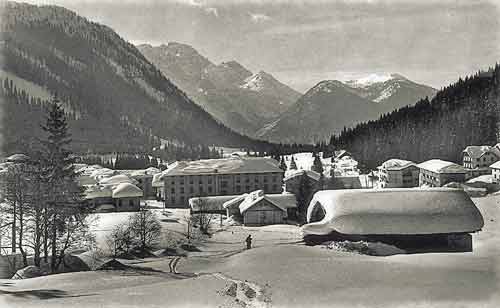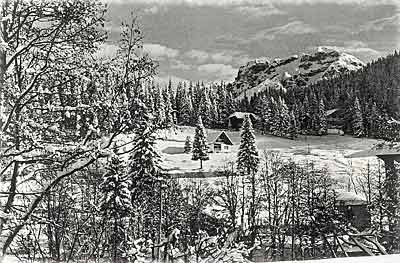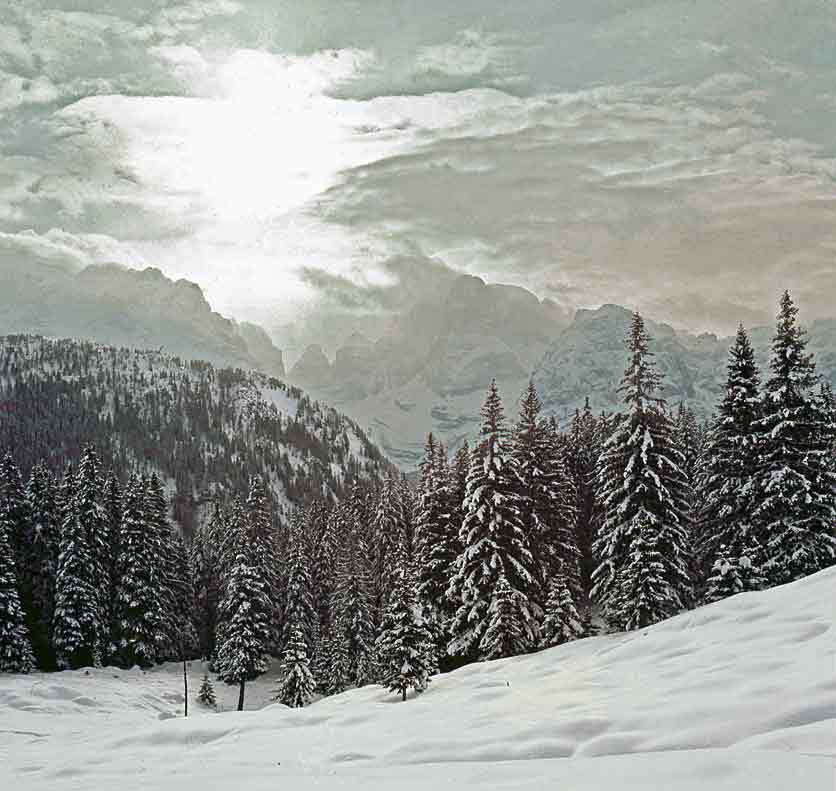| |

Today’s marketing madness tries its utmost to make Christmas arrive earlier every year. Weeks away from this great Christian festival the supermarkets overflow with panettone in shiny packages, and the advertising media produce a wave of inane and unbearably sugary jingles.
Personally, I choose to escape from the wave of tourists that arrive on the weekend before the Feast of the Immaculate Conception and leave my town in the plains for the village of Madonna di Campiglio.
Here, among the delights of nature, in the warm streets throbbing with silence, it is the heart – that spiritual metronome which we rarely take heed of – which really feels the approach of Christmas, with its slow, even pace, unhurried by the vulgar lights of some insolent shop window.
The curtain of evening has already fallen by mid-afternoon, leaving the stars and moon as witnesses. At this hour the lamps awaken in the streets, the shops and offices, and the houses then – lending a special charm to the atmosphere – candles light up here and there, tiny but great flames evoking at once sweet and spicy scents, the sound of strings and warmth of velvet; and all the while billows of smoke grow from the chimneys, carrying the smell of wood and incense. I leave the centre of the village, walking in the sharp chill of late autumn, among clear blue vapours which might be real or dreamed. In the dark silence I reach a copse of fir trees proudly opening out onto the rocky sea of the Dolomites, silvered with the moon and snow. How can Carducci’s verse, “Slowly in the pallid / whiteness of the young moon / stretches the murmur of the firs…” not spring to mind? Even the austere Tuscan poet was moved by the sight of the Dolomites in darkness, lit only by our moon.
 The undergrowth crackling underfoot is now quite silent: not even a solitary animal stirs in that idyll, where thought, for fear of being heard, gives way to sight alone. As I breathe deeply the modest fragrance left by the setting sun on the rose-speckled petals of rock, enigmatic as wild orchids in their “warlike spirit”…. The undergrowth crackling underfoot is now quite silent: not even a solitary animal stirs in that idyll, where thought, for fear of being heard, gives way to sight alone. As I breathe deeply the modest fragrance left by the setting sun on the rose-speckled petals of rock, enigmatic as wild orchids in their “warlike spirit”….
While contemplating those silhouettes, particularly, in this darkness, seeming like the spires of gothic cathedrals, poetry is heard in the air, like music: Did they not inspire Strauss to compose the “Alpine Symphony”?And we can understand Buzzati’s astonishment at the sight of that wonder: “Are they rocks or are they clouds? Are they real or is this a dream?
As fearful as reality, as enchanting as magic, the Dolomites are perhaps a metaphor for life itself: the shadow of a fleeting dream, the troubadour Jaufré Rudel would have sighed to his beloved Countess of Tripoli.

|
|
